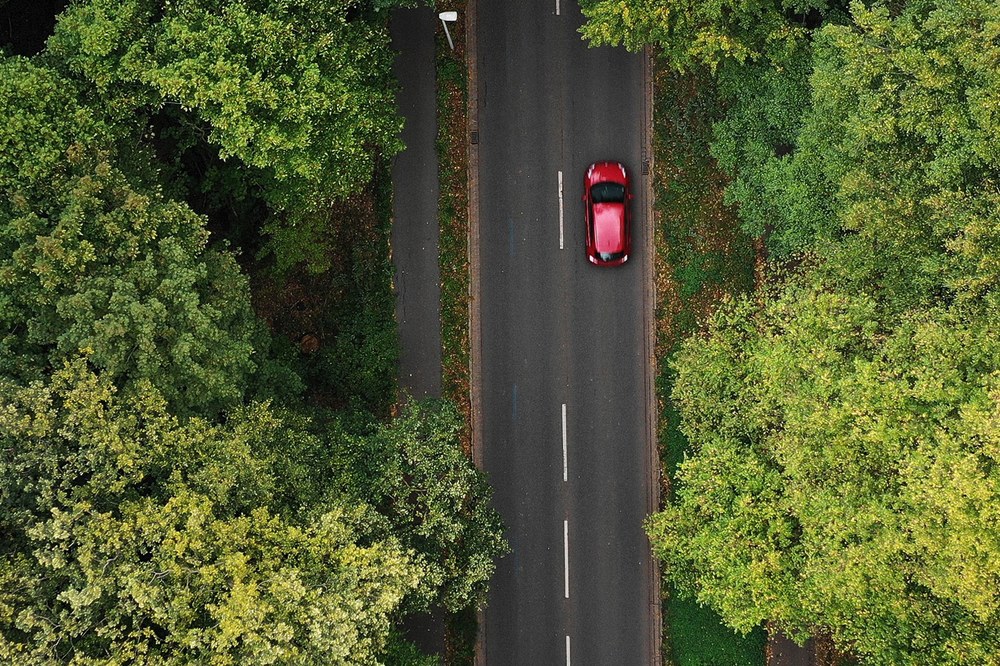Developing sustainable bioeconomy solutions to generate carbon negative biochemicals, biomaterials, bioenergy, and food products.

Issue
In a world with too much CO2 already in the atmosphere and more accumulating every year, reversing climate change requires rapid development of industries that remove and use CO2 at a gigaton scale. For more than three billion years, photosynthesis has been removing tens of gigatons of CO2 per year from the atmosphere, forming the foundation of a food and energy web that has sustained life on Earth. For a few dozen centuries, humans have harnessed photosynthesis through agriculture and forestry, producing raw materials for our food, fiber, and energy industries. We have now begun to consider ways to reconfigure those industries to solve the climate challenge.
Bioenergy and biomaterials can substitute coal and petrochemical products to reduce fossil carbon emissions, as well as sequester carbon in long-lived wood products, bioplastics, and other biomaterials. Organic wastes can be composted, digested or converted to biochar and returned to soils to increase soil carbon storage, while waste CO2 from bioprocessing can be pumped underground to massive geologic storage reservoirs or upcycled to fuels and polymers.
Growing and transforming a new Bioeconomy
Developing industries and products that carbon negative offers remarkable potential for both rural economic development and environmental sustainability. At a global scale, the annual CO2 captured by the photosynthesis of forests, agricultural crops and grasslands exceeds fossil fuel emissions by a factor of ten. Converting just a few percent of that photosynthesis to carbon negative bioenergy and biomaterials can play a critical role in reversing climate change and generate millions of jobs and hundreds of billions of dollars of new economic activity. However, there are a range of technical, social, economic, and policy barriers to realizing that vision. The initiative aims to catalyze the development of integrated innovative processes rooted in systems approaches that ensure the viability and long-term sustainability of the solutions.
Convener
Juliana Vasco-Correa, Ph.D.
Assistant Professor of Agricultural and Biological Engineering
Associated Members
Associates
- Mary Ann Bruns, Associate Professor, Soil Microbiology & Biogeochemistry*
- Melik Demirel, Huck Chair & Professor of Biomimetics*
- Paul Esker, Assistant Professor, Epidemiology & Field Crop Pathology*
- Lara Fowler, Sr. Lecturer, Assistant Director of IEE*
- Michael Jacobson, Professor
- Heather Karsten, Associate Professor, Crop Production/Ecology*
- Judd Michael, Professor, Agricultural and Biological Engineering
- Matthew Royer, Assistant Research Professor, Director Agriculture & Environment Center*
- Robert Weaver, Professor of Agricultural Economics*
Affiliates
- Charles Anderson, Associate Professor of Biology
- Elizabeth Boyer, Professor, Water Resources*
- Rachel Brennan, Associate Professor, Environmental Engineering*
- Stephen Chmely, Assistant Professor, Agricultural and Biological Engineering*
- Wayne Curtis, Professor, Chemical Engineering*
- Kenneth Davis, Professor of Atmospheric & Climate Science*
- Lauren Greenlee, Associate Professor, Chemical Engineering*
- Zhen Lei, Associate Professor, Energy & Environmental Economics*
- Bruce Logan, Kappe Professor, Environmental Engineering*
- Felipe Montes, Assistant Research Professor, Plant Science
- Andrew Read, Director, Huck Institutes of the Life Sciences*
- Phillip Savage, Professor & Department Head, Chemical Engineering*
- Rui Shi, Assistant Professor, Chemical Engineering*
- Hilal Ezgi Toraman, Assistant Professor, Energy & Mineral Engineering & Chemical Engineering*
- Meng Wang, Assistant Professor, Environmental Systems Engineering*
- Hoaje Yi, Assistant Research Professor*

